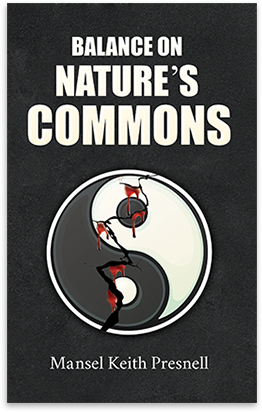
ADDRESSING ENVIRONMENTAL INSTABILITY - SOCIAL PRIORITIES. Part 5
Operation of a community involves a “public” sector and a “private” sector. Governance evolved as a means of regulating a community’s access to the natural commons. In the hands of the public sector, governance works for the common good. That process is aided by the private sector which provides specialised skills.Good governance is a product of balance. It can be likened to a rowing skiff where oarsmen on the port side represent the private sector and oarsmen on the starboard side the public sector. Evenly balanced and working cooperatively they move the boat through the water at maximum speed. In practice, the crew may ship a cox. That person adds weight to the skiff, slowing progress, but because the cox sits where they can see forward, and because they can apply the tiller to compensate for any imbalance in rower effort, their extra weight can be justified. A wise choice of cox will see the skiff maintain its course with minimal need to use the rudder. Applying rudder will slow a boat down. The cox’s role can be equated to governance.
Whether it be a democratic government, a communistic government, or something in between, currently all are ineffective at regulating equitable access to the natural commons. In centralising control, governments lose touch with the reality of what sustains a community. Centralised control homogenises the population reducing diversity. It also stifles innovation and stimulates class divisions.
A focus on materialism has destroyed any balance between the public and the private sectors. The private sector has evolved to spawn vast multinational corporations that have penetrated the political system in order to lay claim to ownership of the natural commons. Communications v/s pharmaceuticals v/s mining v/s criminal organisations v/s technological giants etc, etc., each competing for the biggest slice of the cake. Each seeking to profit from their acquisitions. Governance for the common good is becoming rare.
Profiteering from arms supply keeps several major economies afloat. Whether it is a communist army, a democratic army or a terrorist army, all have shown themselves to be capable of pursuing genocide while vandalising both natural and social environments. That despite the vast majority of people in the communities they claim to ‘protect’, being of peaceful inclination and decrying the death and destruction being dismissed so lightly by the perpetrators.
Unfettered globalisation of a market economy has led to rampant exploitation by a corporate sector that, freed from effective public sector moderation, is upsetting natural balances and eroding the capacity of our planet to support life. The skiff is going around in ever decreasing circles, and John O’Grady will tell you where that ends up. (They’re a Weird Mob 1957).
Post Views : 139